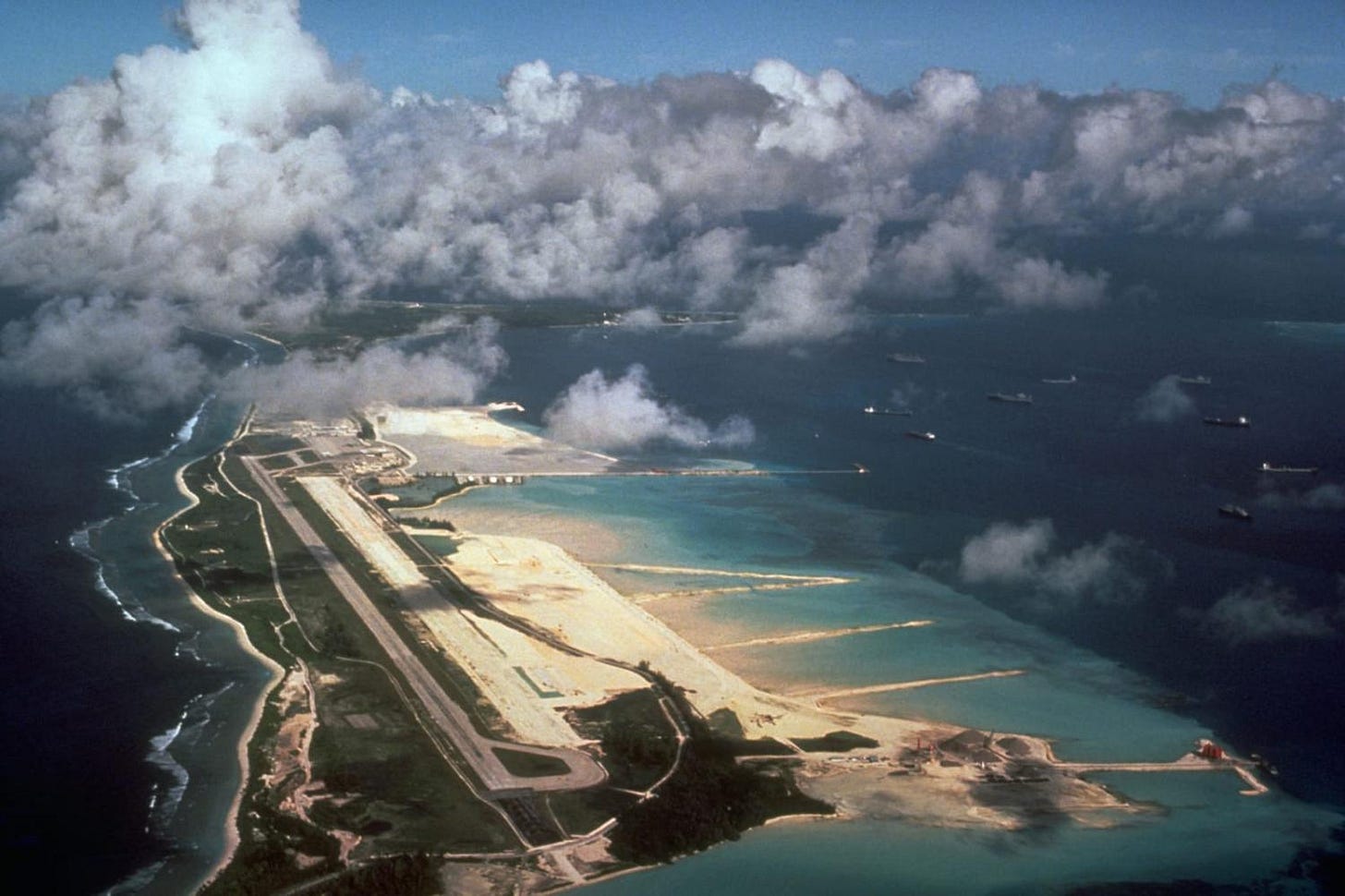What caught my eye - February 2025 edition
Climate security and Trump 2.0, German intel report, the evolution of selling geopolitical risk
Hey readers, have you taken a chance to surface for air with all the news the last three weeks? Whatever your political persuasion (or lack thereof), it’s important to take a step back and either take stock or take a breather. We’re in a marathon, not a track meet. And it’s Valentine’s Day / Lantern Festival, so you might as well treat yourself to some chocolate or some tangyuan (glutinous rice balls filled with seasame / peanut / red bean: seriously, if you ain’t hittin’ it, you missin’ it).
As I explained in my previous post, this newsletter is switching formats, generally alternating between a) a roundup of the latest developments in the climate security space and b) voices from experts, practitioners and investors in the community.
So first up, a digest of what caught my eye:
What caught my eye:
Here are the latest climate security news items from the past week, along with their implications for security risk professionals and investors:
So what’s going to happen in Trump 2.0 and what does it mean for climate security? On the surface the proposed IRA rollbacks, the decimation of USAID, new questions on the fate of NOAA and weather data, to name a few, makes it feel like “it’s over for now.” But is it? The Center for Climate Security signposts some evidenced-based, bipartisan-rooted recommendations for the new administration. Worth a read.
Climate security in Trump 1.0: Amidst the flood the zone tactics used by the Trump administration across domestic and foreign policy, John Conger points out it may be worth remembering what happened with regards to climate security in the first Trump term. Adaptive strategies to sustaining and strengthening the US military’s Arctic presence (may get dusted off with renewed interest in strategic access to ice-free sea lanes, undersea telco and critical minerals), the first major climate risk audit of DoD installations and more. Remember: Reagan tried to dramatically downsize defence spending in the 1980s and failed. Many critical DoD installations are in red states and districts - in a closely divided House and Senate, good luck getting the votes. And the reverse of “what have you done for me lately” still holds true in American politics: cuts are abstract until it a) puts you and your children’s safety and risk and b) it jeopardises your livelihood. So - buckle up.

German Intelligence Warns of Climate Threats to EU Stability: Ahead of the Munich Security Conference this weekend, a report by Germany's Federal Intelligence Service (BND) indicates that global warming will exacerbate conflicts, hunger, and migration worldwide, posing significant risks to Europe's stability. Migration is near the top of the agenda for the German federal elections next weekend. A divided Europe over Ukraine, the US, Russia, means steadily upward flows of migration pressures into the 2030s can risk undermining EU stability. Aerospace and defence spending go up not just to deal with the Russia threat, but border and internal security investments get boosts. Joining climate and security explicitly creates new intelligence requirements for the BND, with access to unique physical and transition risk datasets of likely increasing interest, as well as informing German infrastructure operators of what and how their advice is informed. Innovations in maritime surveillance, drone technology and asset tracking may find renewed interest especially in southern European states. So may prisons.
More good data needed: The Stockholm International Peace Research Institute (SIPRI) emphasises the need for more reliable data on climate finance to address climate security gaps effectively: OECD data on actual deployed capital (versus commitments), categorisation of activities, and the income groups of those receiving finance, amongst many, are incomplete and hard to draw definitive assessments. Good policy and sound investment decisions need good data - and without these ingredients, much needed “climate survival financing” to the most vulnerable income demographics and the least developed countries will go begging.
The changing nature of geopolitical risk management: just as climate risk is seen as a major source of value creation - to existing asset classes and as a bankable sub-sector itself, so is geopolitical risk. I wrote on LinkedIn a couple of weeks ago on how JP Morgan is setting up their own geopolitical risk advisory shop, like an in-house Eurasia Group or Teneo. I got a lot of engagement out of it, and I really think more people are seeing opportunity somewhere in the space, but are trying to figure out how to monetise beyond the consulting model. No one has done predictive analytics well so far…will someone step up to the plate?
Next up
It’s our first guest of the year, a longtime friend of the newsletter and someone at the coalface of the California wildfires. Stay tuned!




